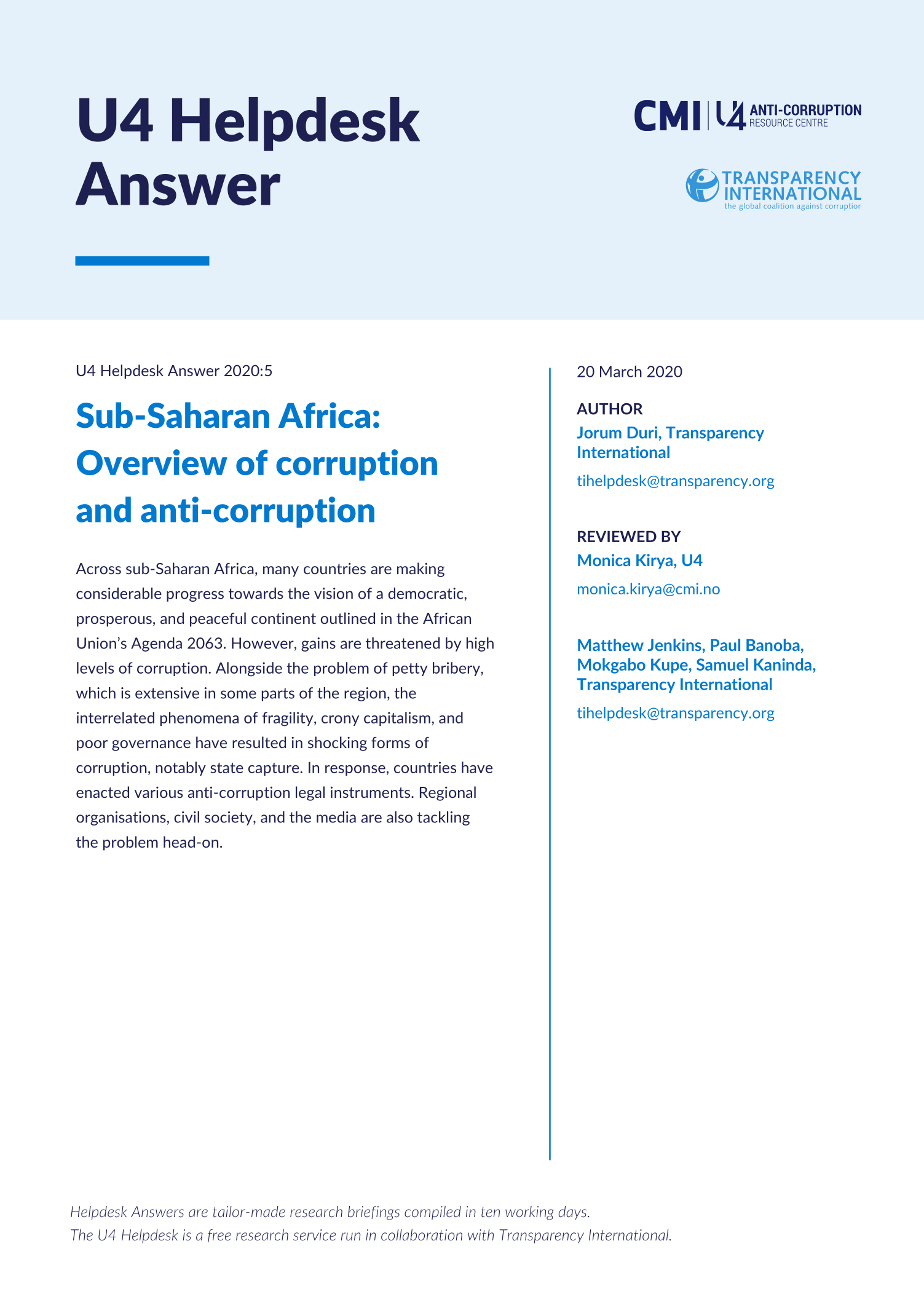Main points
- Global governance indices suggest that the public sector in sub-Saharan Africa is the most corrupt of any region in the world. Many citizens believe that levels of corruption have increased in recent years and are not satisfied with their governments’ anti-corruption efforts.
- Corrupt practices are deeply intertwined with ongoing conflict and state fragility in some African countries, notably in the Horn of Africa, the Sahel region and the Democratic Republic of the Congo.
- Political corruption is common, and it takes many forms, such as state capture, patronage networks, opaque political party financing, vote buying and unresolved conflicts of interests.
- Land-based corruption is especially prevalent in the region, and studies have shown that women are particularly vulnerable.
- Various regional legal instruments have been introduced in the last two decades, with mixed results, while there is a growing number of regional organisations, civil society and media groups involved in anti-corruption work.



